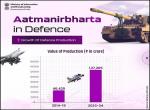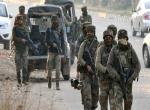The recent Supreme Court order to disband the Special Police Officers (SPOs), which was widely criticised to be influenced by the Naxal sympathising intelligentsia, is likely to create a major road block to the anti-Maoist security operations in various states. Meanwhile, the order could be said to be another achievement of the well-grounded Maoist propaganda machinery, comprising of lawyers, activists, writers and so on that have produced a multitude of literature and organised hundreds of seminars and public programmes, from Delhi to New York, vilifying the government’s anti-Naxal efforts and the people’s movement called Salwa Judum.
The Special Police Officers (SPOs) are local youth recruited for fighting the Maoists in remote areas where the writ of the administration is overshadowed by the gun power of the Maoists. They were recruited in the initial days from the Salwa Judum camps for protecting the camps. Later, with the endorsement of the Central government, Chhattisgarh began recruiting them from local tribal youth to assist Security Forces (SF) in anti-Naxal operations. They are called Koya commandos in Chhattisgarh and are also recruited in other states like Orissa. The recruitment of SPOs in Chhattisgarh, a state which is highly affected by Left Wing Extremism, is done under the Section 9 of Chhattisgarh Police Act 2000. But the Supreme Court has quashed the appointments of SPOs by Chhattisgarh government stating that the manner in which they are recruited, trained and employed does not conform to the definitions of SPOs narrated in the Police Act 1861.
The SPO is one of the effective solutions for dealing with Maoists that helped the security forces successfully neutralise or arrest many Maoists through raids in remote areas of Chhattisgarh. As it is pointed out in the 2008 report of the National Human Rights Commission (NHRC) committee appointed by the Supreme Court, the SPOs are not synonymous to Salwa Judum. The term Salwa Judum, which is loosely used by the propagandists against any civilian who takes a position against the Maoist in Chhattisgarh, is actually attributed to a movement initiated by people of Bastar, mostly tribals, as a reaction to the situation of havoc and fear created by Maoists and the atrocities perpetrated by them.
The movement which began more than a decade ago was also the result of the marginal support offered by the government of erstwhile Madhya Pradesh to the tribals in Bastar, who were victims of not only Maoists but also absence of governance, isolation from mainstream and poor living conditions. At later stages, when the movement received the encouragement and support of political class, the people were forced by the Maoists to flee from their original habitats to villages close to centres of administration. These people had to take shelter in camps and were taken care of by the government. The youth, who fought the Maoists back in their villages, were given responsibilities of protecting the thousands of people in camps as the force level of state police as well as Central Paramilitary Forces were very low in Bastar. In the course of time more youth volunteered to be part of this protection force which prompted the state government to recruit these young men as SPOs under the provisions given in the Police Act 1861 and the Chhattisgarh Police Act. The Central government as well as the strategic community endorsed this move as a futuristic and result oriented one and therefore it was decided to recruit and involve more SPOs in the offensives against Naxals.
The Ministry of Home Affairs approved appointment of SPOs for every Naxal affected state and many states already have a good number of them. Therefore the notion that the SPOs are a phenomenon existing in Chhattisgarh only is also part of the false propaganda. Moreover, SPOs were recruited for assisting the Special Forces in J&K and North East. According to the MHA report 2010-11, “Central Government has sanctioned additional 12,000 Special Police Officers (SPOs) to the States of Chhattisgarh, Jharkhand, Orissa, Andhra Pradesh and Maharashtra for strengthening the intelligence network and as greater support to the security forces to launch anti Naxal operations.” Evidently, any such plans of the MHA for additional recruitment of SPOs have been put paid by this order of the Supreme Court.
The apex court had appointed an NHRC investigation team which submitted its report in 2008 justifying the people’s movement and recommending more involvement of SPOs in the security operations. It had pointed out three years back that the SPOs are being confused with Salwa Judum activists, the Salwa Judum is almost non-existent and majority of allegations of human right excesses by SPOs are baseless. The NHRC report states, “A lot of confusion has been created by loosely referring to the Special Police Officers as Salwa Judum activists. They are instead a part of the security apparatus and have played a significant role in the strategy of the state to deal with Naxalism. The enquiry team came across certain instances where excesses had been committed and the State had proceeded against the public servants who failed to operate within the four corners of the Law.” Nevertheless and unfortunately, the Supreme Court went ahead without taking into account the observations and recommendations of the NHRC team and passed an order to disband the SPOs.
It need to be noted that the SPOs are an inevitable part of the legitimate anti-Naxal strategy available with the state at present. The NHRC report approves and legitimises the role of SPOs through the following comments - “They are physically very fit and are familiar with the local terrain and the language. More importantly, they play a very important role in spotting ‘sangham’ members and Naxalites. Many of the SPOs are themselves former ‘sangham’ members and are well aware of the modus operandi of the Naxalites.”
After many years of confronting the Naxals, the situation is moving towards a stalemate, which the Home Minister P Chidambaram puts it in his own words: “Looking back at 2010, my assessment is that there is a kind of a stalemate. The State governments concerned cannot claim any major advance, nor should we conclude that the CPI (Maoist) has gained the upper hand. There have been casualties on both sides.” But, if the state has made some significant advance in the Naxal affected hostile terrains of Bastar, the major credit goes to the SPOs who are familiar with the forest and hilly terrain, physically fit enough to fight a long battle after walking for hours, know the language of the tribals, have relations which provide them local intelligence and moreover are outraged by the injustice perpetrated over them by the Naxalites. Therefore, opting them out will make the task more difficult for the CPMFs to conduct operations in an unfamiliar and hostile territory and push back the state to where it had started many years back.
Instead of disbanding the SPOs completely, options for integrating these tribal youth into the system should be worked out. The restrictions on educational qualifications to a minimum tenth pass could be waived off at least in the cases of SPOs to fill in the 12000 vacancies of the state police force. It is irrational to think that a state like Chhattisgarh, with low literacy level, will be able to fill up these vacancies in a very short time. Moreover, it needs to be recognised that this needless task of disbanding the 3000 SPOs peacefully, collecting back the weapons and giving protection to them from the Maoists is not only arduous but also a waste of time.
Therefore the possibilities of retaining the SPOs, absorbing them in state police and training them to the finest level possible should be explored. This will not only prevent the Maoist propaganda department to continue misusing the media and judiciary against the people of Bastar, but also help in containing the menace in Dandakaranya.
---------------------------------------
Published Date: 20th July, 2011









Post new comment